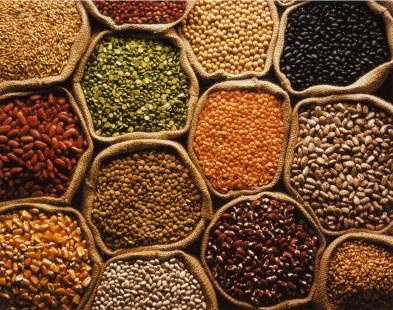Millets, Health benefits and their types

Over the past few years, there has been a healthy food revolution. Especially, with the increasing health consciousness among people, there has been a rise in the demand for nutrient-rich cereals and exotic berries. No wonder why millets have grown as a fad among millennials for its umpteen health benefits.
Millets are cereal crops and small seed grasses, which are widely used in African and Asian countries. Since ages, these small crops were used for human consumption as well as a fodder for animals. Majorly cultivated in the semiarid tropical regions of Africa and Asia, around 97 percent of the world’s overall millet production happens in these regions.
Health Benefits of Millets:
Since ages millets were commonly used to feed birds and animals until the health benefits of these superfoods were known to the world. However, in various parts of India, millets were used for a variety of dishes. Especially, for their incredible nutrient-rich composition.
According to the health and nutrition expert Tapasya Mundhra, ‘Millets are extremely nutritious and good for health and they also need less water and can store for years, as they have a long shelf life. Millets make for a perfectly healthy meal. In fact, it is often advised to prepare millets in the form of porridge for growing kids and aging adults. What’s more, millets are loaded with a high amount of starch and proteins, which can be beneficial, if added to the daily diet.’
Millets are good for coronary diseases:
These little grains are a powerhouse of nutrition, which helps in improving heart health and can effectively reduce coronary blockage. It is enriched with the goodness of magnesium, which can effectively reduce blood pressure and risk of stroke and heart attacks.
Millets can manage sugar level:
Millets are a rich source of magnesium, which helps in stimulating the level of insulin, thereby increasing the efficiency of glucose receptors in the body, which further helps in maintaining a healthy balance of sugar level in the body.
Millets promote digestion:
Rich in fiber, millets make for a healthy cereal, which can help in digestion and can relieve bowel issues. It helps in gastrointestinal problems and can ease in other diseases related to the liver and kidney. It can also help in reducing the risk of colon cancer.
Helps in detoxification:
Millets are loaded with components such as curcumin, ellagic acid, Quercetin, and catechins, which further help in removing foreign agents and free radicals and balance the enzymatic reactions in the body. These can naturally detoxify the blood.
Types of millets
Jowar (Sorghum)
Sorghum is commonly known as Jowar in India. Traditionally, jowar was used as a grain to make flatbreads/ rotis. Enriched with the goodness of iron, protein, and fiber, jowar can help in reducing cholesterol level as it has a component called policosanols (a part of sorghum wax). It is good for people who have a wheat intolerance.
Ragi (Finger Millet)
Ragi is used as a healthy substitute for rice and wheat. Ragi is undoubtedly a powerhouse of nutrition. Loaded with protein and amino acids, this gluten-free millet is good for brain development in growing kids.
Foxtail millet
Foxtail millet has healthy blood sugar balancing carbohydrates, and it is popularly available in the form of semolina and rice flour. The presence of iron and calcium in this millet helps in strengthening immunity.
Bajra (Pearl millet)
This millet is known for its umpteen health benefits. Packed with the goodness of iron, protein, fiber, and minerals such as calcium and magnesium; the daily consumption or inclusion of this millet can work wonders.
Barnyard millet
This nutrient-dense millet has high fiber content, which can effectively help in losing weight. It is a rich source of calcium and phosphorous, which helps in bone building and its daily consumption helps in fighting bone diseases.
Proso millet
This millet can effectively help in balancing blood sugar level. Its low glycolic index has made it a fad among weight watchers.
Little millet
Packed with the goodness of B-vitamins, minerals like calcium, iron, zinc, and potassium, little millets can provide essential nutrients, which further help in weight loss. It is a part of many traditional dishes in south India. What's more, more than anything its high fiber content makes it a healthy replacement for rice.
You got a 22.65% upvote worth $0.013 from @upvotewhale courtesy of @sravyajosyam!